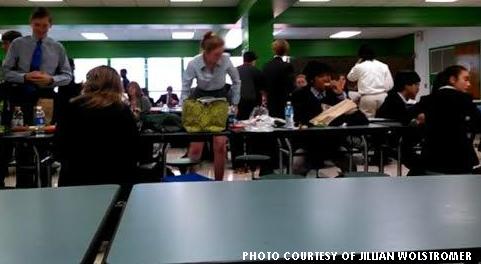Speech and Debate is a club many students from middle schools and high schools can participate in to sharpen their reasoning and debating skills. Leesville has recently begun to offer this opportunity.
The club helps students develop their debate skills in different categories. If they want, they can compete in tournaments held at different schools. Students can move up in ranks, from novice, to junior varsity, to varsity. They can expand to larger competitions, going from local, to district, and then to national tournaments.
As students move up from local to district and from district to national, the benefits grow. Local competitions are mostly just for fun and practice. District competitions are more serious, and those who place in the top ranks can move on to nationals with over 130,000 students from around the country. Those who compete in nationals can win scholarships.
Aside from scholarships, Speech and Debate has other benefits. The National Forensic League list many of the advantages to joining speech and debate. Students who participate in speech and debate events have stronger critical thinking skills, as well as better grades on standardized tests. There is also a higher rate of people who graduate and lower rate of people who drop out in students who participate in the club.
Participants in any of the three categories of debate can explore different problems in the world. Public forum allows competitors to explore more current topics, while Lincoln-Douglas has more to do with morals. Student Congress lets students mirror actual Congress and fight for real bills.
Speech lets students express themselves in different ways. For example, in Original Oratory someone has to prepare a speech beforehand on a topic they choose. In other categories, they can interpret their speech in different ways. They can give their thoughts in rehearsed plays or impromptu speeches.
Leesville’s Speech and Debate club had a local competition at Cary High on November 8. The members debated against a number of other schools, such as Enloe, Pinecrest and Cary Academy. Debate includes three categories: Public Forum-two students debating with two students, Lincoln-Douglas-one student debating with another student and Student Congress-students debating to pass bills. Speech includes multiple categories, such as dramatic interpretation or original oratory. Leesville competed in all three categories of debate and two categories of speech. They debated as novices and junior varsity members.
Public Forum is a two-on-two debate with partners arguing for one side. Gabrielle Rivera and Griffin Bobrowski debated in junior varsity public forum at the event. The resolution they disputed was whether or not the benefits of genetically modified foods outweigh the harms.
Rivera and Bobrowski did not win any awards, due to the fact that, upon looking at the judge ballots, they had lost all their rounds.
“People are rude, and sometimes the judge isn’t fully aware on how the debate works. Parents come in [as judges] and they’re just hearing about this for the first time. Sometimes they do it on whether someone’s voice cracks in the debate or such. [It] really depends on who you’re debating,” said Gabby Rivera in response to her placing.
Although Leesville did not place for Public Forum, Abbott Gaddy had an honorable mention for Lincoln-Douglas. Students in this debate discussed whether the “right to be forgotten” from Internet searches should to be a civil right. Gaddy competed as a novice, or beginner, but she made sure she was prepared.
This was Gaddy’s first time debating, and she researched the different parts of the debate crossfires, rebuttals, and cross examines– helped her to succeed. She made her points strong and came up with ways to belittle her opponents points. However, this only got her an honorable mention, and not a placing.
The last category of debate, Student Congress, allows students to try to pass bills as if they were in actual congress. They debated about different legislations, from stem cell research to modernizing the United States Navy. For the rounds, competitors have to write a 3.5 minute speech on the different legislations and debate and question the bills, mirroring actual Congress.
Leesville’s group failed to place at all in Student Congress, and they never won any awards for the debate category. However, Leesville won two awards in the speech category.
Austin Credle managed to place twice in Speech. Credle double entered, meaning he competed four times for two different categories: original oratory and impromptu.
For Impromptu, Credle had two minutes upon entering the room to write a speech comparing two people of his choosing. For his first round, he chose Bill Cosby and Bill Clinton. After the two minutes were up, he had to give a 3 to 5 minute speech comparing the two. He placed fourth out of 25 for his category.
Credle also competed in original oratory, where he was able to write his speech beforehand, making it 5 to 10 minutes long. Credle gave a speech on why public school students should be required to read the bible in school. He placed fifth out of 25 in this category.
“I think it was a lot of teamwork, a lot of encouragement, and a lot of preparation. Not just with the speech but with mental preparation and just seeing the win. [I went in] thinking it’s just for fun,” said Credle.

Leave a Reply